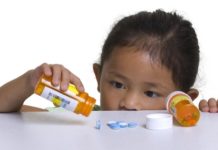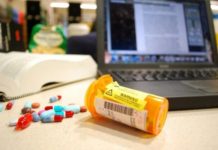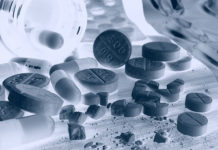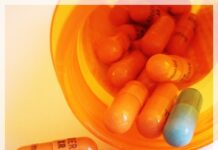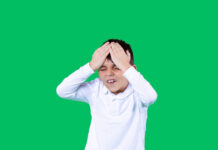Better Sleep Helps With ADHD; Medications Worsen Sleep
"Sleep-focused treatment improves mood and quality of life in children with attention-deficit/hyperactivity disorder," reports Psychiatric News, covering a presention by Dalhousie University researcher Penny...
Increasing Numbers of Children Prescribed Multiple Psychiatric Medications
According to researchers, children are being increasingly prescribed multiple different psychiatric medications.
Stimulant Drugs Have Adverse Effects on Cognitive Functioning in Healthy Students
Study of students without an ADHD diagnosis finds that stimulants (Adderall) have little impact on cognitive performance.
Rates of ADHD Diagnosis and Prescription of Stimulants Continue to Rise
Two new articles find that rates of ADHD diagnosis and stimulant prescription continue to rise all over the world.
The ADHD Drug Epidemic: Addiction, Abuse, and Death
A new analysis of FDA data, published on September 10th by the Milwaukee Journal Sentinel/MedPage Today, reveals the dangers of the common prescription of...
The Faulty Reasoning That Turned ADHD Into a Disease
Leading ADHD researchers outline four mistakes that turned ADHD from a description of behavior into a medical disease.
Many Teens Start Misusing Stimulants By Age 13
An equal percentage of young people will start misusing ADHD-related and other stimulant drugs for the first time at age 13 as will start at age 20.
Stimulants Don’t Improve Academic Performance in Kids with ADHD
“Efforts to improve learning in children with ADHD should focus on obtaining effective academic instruction rather than stimulant medication.”
Behavioral Therapy (Including Parents) More Effective for ADHD than Drugs
Stimulant medication does not improve the academic performance or test scores of the 9% of all children in the U.S. diagnosed with ADHD, according to...
Race and Class Affect Teacher Perceptions of ADHD Medication Use
Study uncovers teachers’ attitudes surrounding ADHD medication use and examines the influence of race and social class on teacher beliefs.
JAMA Review Questions Use of Ritalin for ‘ADHD’
In December, MIA reported on a systematic Cochrane review on the research for the safety and effectiveness of Ritalin (methylphenidate) that found substantial bias...
Stimulant Prescribing Patterns for ADHD Not Impacted by Scientific Evidence
The article suggests that research challenging the evidence for ADHD drugs does not lead to changes without public campaigns.
Children Taking ADHD Drugs More Likely to Take Antidepressants as Teens
Adhering to a commonly prescribed medication for ADHD in children is associated with higher chances of being prescribed antidepressants in adolescence.
Long-term Usage of ADHD Drugs Linked to Growth Suppression
Findings suggest that treatment not only fails to reduce the severity of “ADHD” symptoms in adulthood but is associated with decreased height.
Stimulants, But Not Cannabis, Predict Readmission for Psychosis
Prior admissions with stimulant disorder, but not a prior cannabis disorder diagnosis, are a negative prognostic sign in first-episode psychosis according to new research...
Bipolar Patients Have High Drug Burden — Especially Women
Over one third of people with bipolar diagnoses admitted to a Rhode Island hospital were on four or more psychiatric medications, says research published...
ADHD Medication Does Not Improve School Achievement
The journal Science reviews the current state of research on ADHD medication, finding that the drugs do not improve school performance or achievement in...
ADHD Drugs Linked to Psychotic Symptoms in Children
Stimulant medications like Ritalin and Adderall, often prescribed to treat children diagnosed with ADHD, are known to cause hallucinations and psychotic symptoms. Until recently these adverse effects were considered to be rare. A new study to be published in the January issue of Pediatrics challenges this belief, however, and finds that many more children may be experiencing psychotic symptoms as a result of these drugs than previously acknowledged.
Poor Evidence and Substantial Bias in Ritalin Studies
The authors of a large scale well-conducted systematic review of methylphenidate, also known as Ritalin, conclude that there is a lack of quality evidence for the drug’s effectiveness. Their research also revealed that Ritalin can cause sleep problems and decreased appetite in children.
ADHD Stimulant Use Again Strongly Linked to School Accountability
Wealthier children are more likely to take stimulants only during the school year and not during the summer, according to a study in American...
About 1 in 100 Children Treated with Ritalin Experience a Serious Adverse Event
A recent Cochrane review has found that serious adverse events occur for about 1% of children and adolescents treated with Ritalin.
Adults Treated for ADHD Report Low Quality of Life
Adults receiving ADHD medications and therapy frequently experience adverse events that interfere with employment and daily life.
The ADHD Drug Abuse Crisis on College Campuses
The abuse of ADHD drugs on college campuses has reached epidemic proportions, according to the authors of a recent review in the journal of Ethical Human Psychology and Psychiatry. ADHD drugs, like Ritalin and Adderall, have become so commonplace on college campuses that students abusing these drugs for studying, weight loss and partying have underestimated their risks. As a result, we have seen exponential increases in emergency room visits, overdoses, and suicides by students taking these drugs.
Ritalin Increases Risk-Taking in Women
Women who were asked to play a gambling were significantly more likely to keep betting when the stakes increased if they had taken Ritalin...
Stimulants Double Adverse Cardiovascular Events in Children
In what they describe as the first large-scale, long-term, nation-wide study of its kind, Danish researchers have confirmed that ADHD stimulants double the risk...


